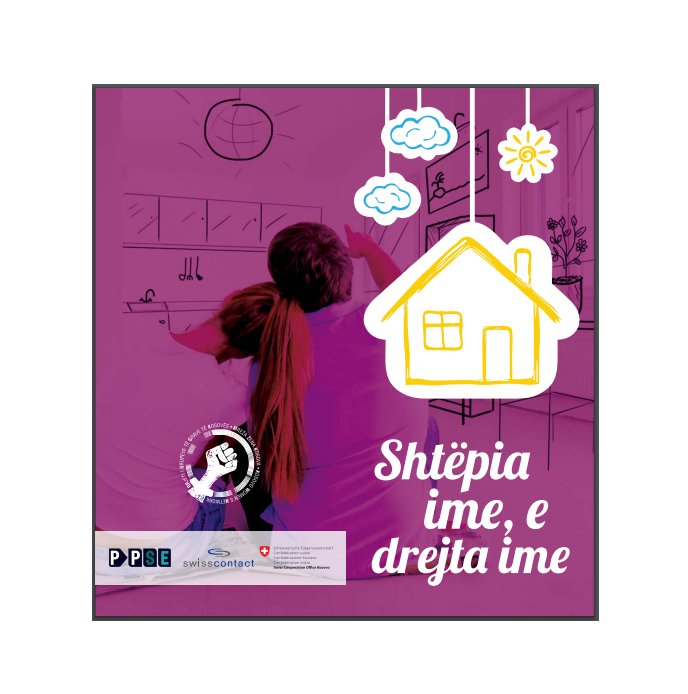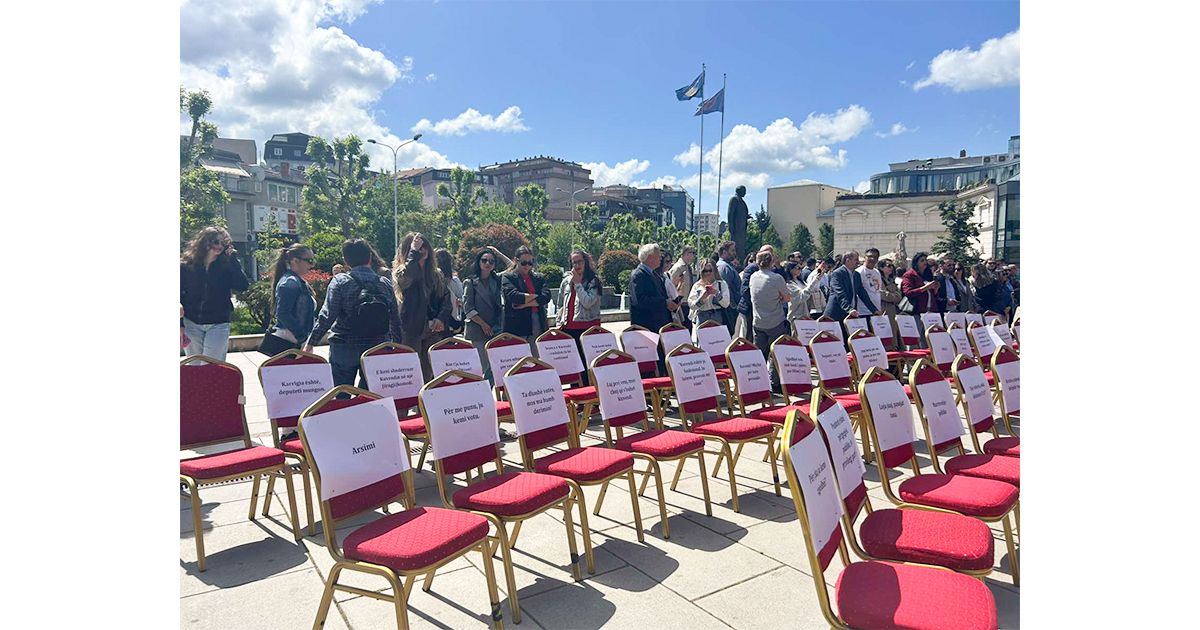The Kosovo Women’s Network (KWN), in the framework of the project titled “Immovable property and gender equality”, supported by PPSE Swisscontact, and in cooperation with the Art and Community Center – ARTPOLIS, has successfully finalized the series of theatric shows titled “Hisja” (the share), with the last show in Peja.
“Hisja” series shows have been designed to be in the format of Forum Theatre and performed over the course of two weeks for the Kosovo society at the largest centers, namely in Prizren, Gjakova, Prishtina, Mitrovica, and Peja.
“Hisja” has shown the reality faced by Kosovo women and girls in the context of difficulties of realizing their property rights. Furthermore, the show has aimed at mobilizing the society for the property rights that the women and girls enjoy.
The shows were given by director Zana Hoxha-Krasniqi and actors Donikë Ahmeti, Ermal Sadiku and Kushtrim Qerimi, who transmitted through their roles the conduct of judges during the proceedings for the registration and inheritance of the immovable property, but they have also reminded us of social dogmas and the discriminatory behavior of the families against the women’s/daughter’s right to inherit property. A considerable number of citizens, who watched the shows, welcomed them. After the shows, their discussions focused even on concrete cases, providing details. In Mitrovica, a student of the Faculty of Law opposed the judge, calling him non-professional, and quoted the applicable structural laws on the women’s right to property, such as the Law on Family, Law on Inheritance, Law on Gender Equality, and Law on Anti-Discrimination.
In Gjakova, a participant shared her experience with the attendees saying: “I transferred my property to my brother; today I regret doing so. After my mother died, I have not gone home anymore, because my brother and his wife do not receive me”.
In Peja, a citizen declared: “I have three children, two sons and a daughter. I will divide my property into two parts – one for my sons and the rest for my daughter”.
In the framework of the project titled “Immovable property and gender equality”, the KWN aims at raising the awareness of the importance of registering the property in the name of the woman as the sole owner, co-owner, or equal heir. In addition to this, the project foresees the provision of legal and financial aid to women in order for them to realize such right.
Furthermore, besides the shows and legal and financial aid, this project foresees door-to-door meetings with families in all the main centers in Kosovo, in order to raise the awareness of the society about the importance of realizing the women’s property right. These meetings are organized by KWN activities in various cities of Kosovo.
My home, my right!



